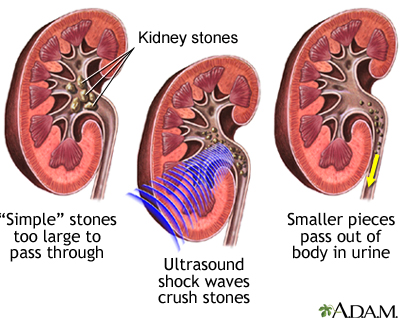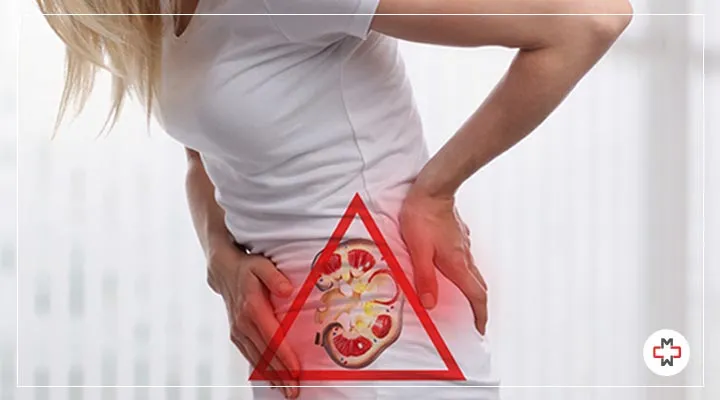Comprehensive Guide to Kidney Stones vs UTI: Diagnosis, Causes, and Relief
Comprehensive Guide to Kidney Stones vs UTI: Diagnosis, Causes, and Relief
Blog Article
Exploring the Symptoms and Causes of Kidney Stones in Contrast to Urinary System Tract Infections: An In-depth Overview
The exploration of kidney rocks and urinary tract infections (UTIs) reveals a complex interplay of signs and symptoms and underlying reasons that require careful evaluation. What are the crucial differences in their signs and symptoms, and how might these inform therapy methods?
Overview of Kidney Stones
Kidney stones, also referred to as kidney calculi, kind when particular substances in the urine crystallize and aggregate, resulting in the growth of hard deposits within the kidneys. These stones can vary in dimension, varying from a grain of sand to a golf ball, and can be made up of different materials, the most common being calcium oxalate, uric acid, struvite, and cystine. The development of kidney rocks is influenced by a number of factors, consisting of nutritional habits, fluid intake, and hereditary tendency.
Signs of kidney rocks might include severe pain in the back or side, blood in the pee, queasiness, and frequent peeing, specifically as the rock moves via the urinary system. Diagnosis generally includes imaging research studies such as ultrasound or CT scans, alongside urinalysis to recognize the stone's structure.
Treatment options vary based upon the size and kind of rock, in addition to the severity of signs and symptoms (Kidney Stones vs UTI). Little stones might pass naturally with increased liquid consumption, while bigger stones might call for medical interventions such as lithotripsy or medical removal. Comprehending the pathophysiology and danger factors related to kidney stones is vital for efficient prevention and monitoring
Overview of Urinary System Tract Infections
Urinary tract infections (UTIs) are typical bacterial infections that impact any part of the urinary system, consisting of the kidneys, ureters, bladder, and urethra. They primarily occur when bacteria, usually from the gastrointestinal tract, get in the urinary system, causing swelling and infection. UTIs are classified into two main kinds: straightforward and complex. Uncomplicated UTIs commonly take place in healthy and balanced people with normal urinary system tracts, while challenging UTIs might arise in individuals with underlying conditions, such as structural problems or compromised body immune systems.
The frequency of UTIs is especially greater in women than males, largely as a result of physiological differences, such as a shorter urethra. Danger factors consist of sex, particular contraceptive methods, urinary system retention, and dehydration. The medical diagnosis of UTIs is generally validated with pee tests, which may reveal the presence of microorganisms, white blood cells, or red blood cells.

Signs of Kidney Stones
The pain related to kidney rocks can show up in numerous methods, typically leading people to seek medical attention. Among one of the most usual symptoms is extreme pain, normally local in the lower back or side, which might radiate to the abdomen or groin. This discomfort, often defined as sharp or cramping, can occur all of a sudden and may rise and fall in intensity.
In addition, people might experience hematuria, or blood in the pee, which can range from tiny total up to browse around here noticeable staining. This signs and symptom might be accompanied by changes in urinary system behaviors, such as raised regularity or urgency, in addition to pain throughout peeing. Nausea or vomiting and vomiting are additionally prevalent, usually resulting from the body's reaction to extreme pain.
In many cases, people might experience high temperature and cools, particularly if a secondary infection develops due to the obstruction triggered by the rocks. On the whole, the combination of serious discomfort, hematuria, transformed urinary patterns, and intestinal signs can offer significant insight into the presence of kidney rocks, calling for timely clinical analysis and treatment. Comprehending these signs is critical for prompt diagnosis and effective management of the condition.
Signs And Symptoms of Urinary System System Infections
Infections within the urinary system usually provide an array of distinct symptoms that can significantly affect every day life. The most usual signs consist of a relentless urge to urinate, often gone along with by a burning feeling throughout peeing, called dysuria. Individuals may also experience increased frequency of peeing, creating tiny amounts of urine each time.
Various other remarkable signs include smelly or cloudy pee, which may indicate the existence of microorganisms or pus. In some cases, pee may appear pink or red due to the existence of blood, a problem referred to as hematuria. Additionally, individuals may experience pelvic discomfort or pressure, which can even more worsen the feeling of seriousness.
Systemic symptoms might also manifest, such as fever, cools, and fatigue, especially if the infection has risen to the kidneys. It is necessary to identify these signs early, as untreated urinary system system infections can result in a lot more severe difficulties. Kidney Stones vs UTI. Motivate clinical focus is recommended when these signs are observed, permitting proper diagnostic analysis browse around here and treatment to minimize pain and prevent more health concerns
Reasons For Each Condition
Often, kidney stones and urinary tract infections emerge from distinct yet in some cases overlapping reasons that can influence individuals differently. Kidney rocks commonly develop due to metabolic aspects, dietary options, and genetic predispositions. Increased degrees of calcium, oxalate, or uric acid in the urine can result in stone development. Dehydration, not enough fluid intake, and high-sodium diets can worsen these conditions, advertising crystallization within the urinary system tract.

Recognizing these distinct reasons is vital for prevention and treatment. Kidney Stones vs UTI. While lifestyle modifications may minimize the threat of kidney rocks, proper health and prompt treatment of urinary system tract infections are vital for minimizing their reappearance and associated complications
Verdict
In summary, kidney rocks and urinary system system infections existing distinct signs and symptoms and underlying causes. Kidney rocks are defined by serious discomfort and metabolic aspects, while urinary system tract infections primarily entail bacterial infections resulting in urinary urgency and pain. Although both conditions can lead to hematuria, their development devices differ dramatically. Recognizing these differences is essential for efficient diagnosis and treatment, inevitably boosting client outcomes for those influenced by either condition.
The expedition of kidney rocks and urinary system system infections (UTIs) exposes a complex interaction of symptoms and underlying causes that call for careful evaluation.Urinary system infections (UTIs) are common microbial infections that affect any component of the urinary system, consisting of the kidneys, ureters, bladder, and urethra.Regularly, kidney stones click this link and urinary system tract infections develop from distinct yet often overlapping causes that can affect people differently.In summary, kidney stones and urinary system system infections existing distinct signs and underlying reasons. Kidney stones are identified by serious pain and metabolic aspects, while urinary system infections primarily include bacterial infections leading to urinary system urgency and pain.
Report this page